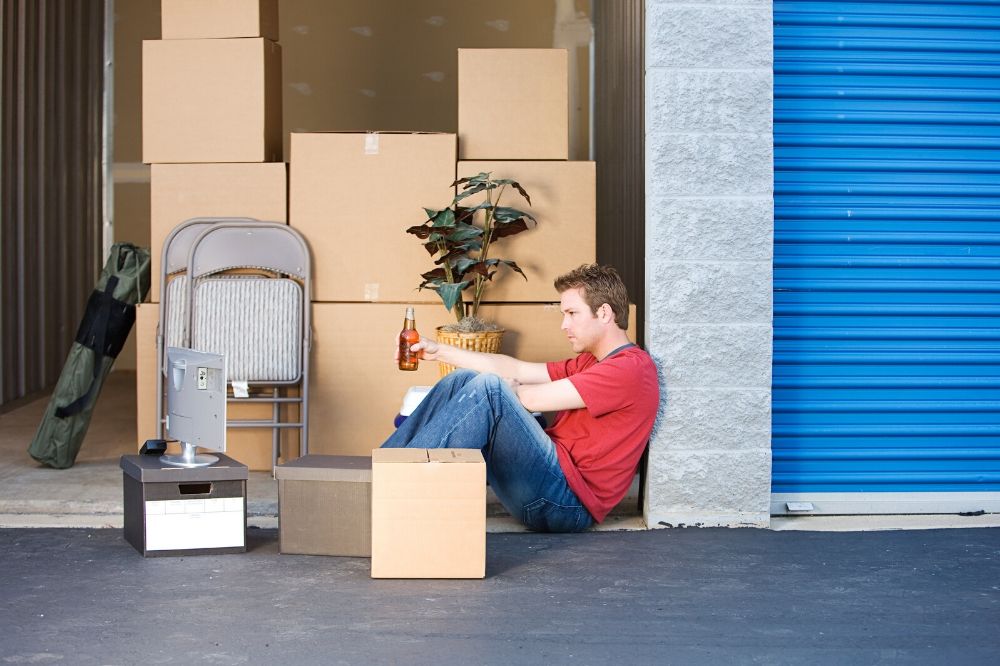

Home / Blog / Home Insurance / Storage Unit Insurance: What You Need To Know

So, you don’t want to live with that floral loveseat, but you think it might be an antique of value one day? Or maybe you keep your collectors items in your storage unit, since the boss of the house has asked them to be out of the way. Whatever they contain, storage units are the ultimate “out of sight, out of mind” location, but this can be an issue when it comes to insuring your stored valuables.
Free Home Insurance Comparison - Save up to 30%
No junk mail. No spam calls. Free quotes.
No Signup required
The short answer is yes, but as with all insurance policies, it would be foolhardy to ignore the details of your homeowners insurance policy as it pertains to personal property stored off-premises.
First of all, you need to understand that there is usually a limit to the value of the personal property (anything that can be carried out of the house, like jewelry or electronics) that can be covered by your homeowners insurance. The limit to what you can claim could be anywhere from $2,000 maximum to $250,000. Obviously, the higher the limit, the higher the premium. Most people have a limit of around $10,000 for their personal possessions.
Side Note: Your policy might allow you to claim replacement cost or actual cost of the items in your home, which is very different. Double-check that you have replacement coverage, as this is significantly more useful if you need a new television, for example!
Typically, your homeowners insurance policy does protect your belongings up to 10% of your policy limit while they’re in storage. So if your homeowners insurance limit is $10,000 for personal property, then your policy will typically cover $1,000 worth of the items in your storage unit. (Note that most insurance policies do not cover firearms, so you will want to check that on your policy.)
Exceptions to this rule are if you need to put your possessions into storage during renovations, or if there has been a disaster in your home. In that case, your insurance policy would deem your home “unfit” to store items and would cover the entire replacement (or actual) cost of your items if they get ruined.
It does, but it’s not a great deal of coverage. Since renters insurance is usually a lot lower than homeowners insurance, and your storage unit items are only covered up to 10% of your renters insurance, you will want to consider getting a separate insurance policy. This is especially true if the contents of the storage unit are valuable.
Another option is to ask to increase your renters insurance from, for example, $10,000 to $25,000, which would cover your off-site property in the storage unit up to $2,500. In fact, this is likely the least expensive option for insuring your storage unit items, as it will typically only raise your annual premiums by about $20-$30 per year.
Free Home Insurance Comparison - Save up to 30%
No junk mail. No spam calls. Free quotes.
No Signup required
The vast majority of self-storage units require some form of insurance, and many offer their customers coverage under their own insurance plans. It would be a mistake to assume that this means you are fully insured: Most of these plans exclude coverage of damage caused by smoke, vermin or mold/mildew. Can you guess what the three most common claims are, when it comes to storage unit insurance?
Stand-alone insurance policies for your storage unit actually have rather low monthly premium rates across the United States, ranging from $8 to $38 per month for up to $10,000 worth of coverage. The actual rate you pay depends on your provider, of course, but most if not all providers offer flat-rate coverage rather than itemized coverage.
The two largest providers of standalone storage unit insurance are Minico and SafeStor. The latter provides up to $15,000 worth of coverage for $24 per month with just a $100 deductible. It doesn’t get much better than that, but you should always shop around, as rates are bound to change over time.
This is a common question for anyone who wishes to store an antique car in their storage unit, for example. First and foremost, it is far safer to store something of this value in your own home garage, even if it means parking your regular vehicle outside. However, you can insure high-ticket items as an additional add-on to your home insurance policy. You may not even have to pay a deductible, but you likely will have to pay to have your costly possessions professionally appraised.
If you are considering renting a storage unit, especially if you plan to store items of value, you really need to know the ins and outs of off-premises insurance coverage. If you already have a storage unit, read the following very carefully. You may think you have adequate coverage for your property, but if you don’t ask the right questions or know what the possibilities are, you could be overpaying for insurance or actually be underinsured in the case of damage or theft.
Margaret Huntley Margaret Huntley is a creative writing and philosophy student at Western University. She has been working as a freelance writer for over two years and has written about everything from insurance, to poker, to health and wellness for international businesses.